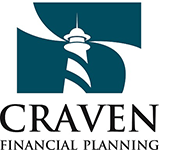ETF Funds vs ETFs in Canada


ETF Funds vs ETFs in Canada: What’s the Real Difference—and Why It Matters to Your Money
“It’s easy to assume ETF Funds and ETFs are interchangeable. After all, they share the same acronym. But dig just a little deeper, and the differences can have a major impact on your investments.”
Same Letters, Different Outcomes
It’s easy to assume that ETF Funds and ETFs are the same thing. After all, the letters line up, and both sound like efficient, low-cost ways to invest. But when we slow down and take a closer look, the similarities begin to fade—and the differences start to matter more than most people realize.
In simple terms, ETFs—or Exchange-Traded Funds—are investment vehicles that hold a basket of stocks or bonds and trade on an exchange, much like individual stocks. You can buy or sell them throughout the day, and you typically own the shares directly.
ETF Funds, on the other hand, are not ETFs themselves. They’re usually mutual funds or pooled investment products that invest in ETFs on your behalf. You’re not buying the ETF directly—you’re buying into a fund that holds a group of them for you.
And here’s the real question: Which one’s right for you?
What Are ETFs, Really?
Exchange-Traded Funds, or ETFs, are one of the most widely used investment tools in Canada—and for good reason. An ETF is a type of investment fund that holds a collection of securities, such as stocks or bonds, and trades on a stock exchange just like a regular share. That means you can buy or sell an ETF throughout the day at market prices, giving you real-time flexibility and control.
For many investors across Southern Ontario, ETFs offer a unique combination of diversification, cost efficiency, and accessibility. Whether you’re investing on your own or with guidance, ETFs have become a go-to for those who want exposure to broad market trends without having to pick individual stocks.
But what really sets ETFs apart—especially from ETF Funds—is this: when you invest in an ETF, you own it directly. Your name, your holdings, your timeline. You choose when to buy, when to rebalance, and how to manage your portfolio. There’s no intermediary decision-maker unless you bring one in.
Think of it like flying the plane yourself. You’re the one in the cockpit. For some, that freedom is empowering. For others, it’s a responsibility they’d rather delegate. And that’s where ETF Funds come in—more on that in the next section.
What Are ETF Funds?
Not all investments that include ETFs are built the same. ETF Funds are designed for investors who want simplicity without having to build or manage a portfolio themselves.
Here’s how it works: Instead of buying ETFs directly, you buy units in a fund that holds ETFs for you. That fund is usually created and managed by a financial institution, or an independent portfolio manager. You don’t choose the ETFs yourself, and you don’t hold them directly—the fund does.
This kind of approach appeals to many people across Southern Ontario—especially busy professionals, retirees, or anyone who prefers to delegate day-to-day investment management while still benefiting from ETFs and broad market exposure.
The trade-off? You’ll typically pay a slightly higher fee than managing your own ETFs, and you might give up a bit of control. But for many investors, the ease, structure, and built-in diversification of ETF Funds is well worth it.
ETF Funds let you delegate the decisions but still enjoy the ride.

ETF Funds let you delegate the decisions but still enjoy the ride.
“An ETF Fund is a professionally managed investment that holds ETFs on your behalf. Instead of buying ETFs directly, you own units in a fund that owns the ETFs—making it a hands-off option with built-in guidance.”
ETF vs. ETF Fund — A Smarter Way to Compare
When people ask, “Which one is better — ETFs or ETF Funds?” the honest answer is it depends on how involved you want to be.
Some investors enjoy managing every detail of their portfolio. Others prefer a more guided, thoughtful approach — one that still leverages ETFs, but through a professionally managed fund that adjusts to their needs. That’s where ETF Funds come in.
If you’re focused on building a reliable plan — not just picking products — ETF Funds may be the better fit. They offer built-in diversification, automatic rebalancing, and access to institutional expertise without needing to micromanage every trade.
ETF vs. ETF Fund — A Practical Comparison
Feature | ETFs | ETF Funds |
Control | Full – you build, rebalance, and adjust | Delegated – managed by a professional or automated system |
Fees | Lower on paper, but comes with time and oversight costs | Slightly higher, but includes built-in support and structure |
Liquidity | Trades instantly, which can lead to reactive decisions | Valued daily, promoting long-term consistency |
Ideal For | DIY investors who prefer hands-on control | Investors who want confidence, clarity, and convenience |
Tax Efficiency | High potential, but requires careful management | Often tax-aware and handled within the fund itself |
Ownership | Direct shares in the ETF | Units in a fund designed to align with long-term goals |
ETF Funds let you stay invested in the markets — without having to monitor them every day.
In a world where time is precious and financial decisions carry weight, ETF Funds give you the best of both worlds: the efficiency of ETFs, and the experience of a guided plan.
“ETF Funds are professionally managed investments that hold ETFs for you. They offer a simpler way to stay diversified, without having to choose and rebalance ETFs yourself.”
“I work with clients every day who want to build wealth, protect their income, and stay on track — without turning into day traders. That’s why I often recommend ETF Funds. They’re not about giving up control. They’re about focusing on what matters.”
Ready to explore what’s right for you?
Let’s talk about your goals and walk through your options together:
Call Bill Craven – 519-351-9411
Email: bill@cravenfp.com
Advisor Profile
“So… Which One’s Right for You?”
This isn’t about one being better than the other. It’s not a contest between ETFs and ETF Funds — it’s a conversation about planning.
Because the real difference doesn’t come down to fees or trading speed. It comes down to you.
- How involved do you want to be in managing your investments?
- Do you prefer full control, or do you value structure and support?
- Are you building a long-term financial strategy, or are you assembling pieces on your own?
For many of the people I work with — especially across Southern Ontario — the answer leans toward simplicity, guidance, and peace of mind. That’s why ETF Funds often make more sense. They still give you access to low-cost, diversified ETFs — but with a layer of intentional planning around them.
“The difference between ETF Funds and ETFs comes down to how much control you want, and how involved you’d like to be in managing your investments.”
At the end of the day, there’s no single right answer — just the right fit. And finding that fit starts with a conversation, not a product pitch.
“For me, it’s not about picking products. It’s about helping you design a plan that reflects your life, your goals, and your values.”
— Bill Craven
When you’ve spent decades helping people across Southern Ontario make financial decisions that impact their families, their businesses, and their futures, you start to see a pattern: the most successful investors aren’t chasing products — they’re building plans.
Plans that consider the seasons of life. Plans that prepare for uncertainty. Plans that reflect the values that actually matter.
I’ve worked with self-employed professionals, growing families, pre-retirees, and clients managing complex financial transitions. And here’s what I’ve learned:
I’ve seen every kind of investor — and no two are the same.
Some want to manage every piece of their portfolio. Others want confidence that someone’s looking out for the bigger picture. Both are valid. But only one comes with a plan that adapts alongside you.
That’s why I often recommend ETF Funds: not because they’re flashy or trendy — but because they give my clients structure, simplicity, and room to breathe. It’s not about giving up control. It’s about knowing someone’s helping you steer the long-term course.
Let’s Talk About You
If you’ve made it this far, you’re not just skimming. You’re thinking. You’re asking questions. Maybe you’re wondering if your current setup is truly aligned with your goals — or if there’s a more thoughtful way to invest without doing it all yourself.
That’s where a conversation can make all the difference.
ETF Funds aren’t about complexity — they’re about clarity. They’re designed to help people like you stay invested, stay diversified, and stay focused… without having to monitor the markets every day.
I don’t sell products. I help people build plans they can trust.
Whether you’re growing your business, protecting your family, or preparing for retirement, I’d be glad to help you explore what fits — and what doesn’t.
Ready to Take the Next Step?
- 📞 Call Bill Craven – 519-351-9411
- Email: bill@cravenfp.com
- View My Advisor Profile on Investia
“Want to understand whether ETF Funds or ETFs are right for you? Let’s talk. I help clients across Southern Ontario build investment plans that fit their real lives — not someone else’s product list.”
Frequently Asked Questions: ETF Funds vs ETFs in Canada
1. What’s the main difference between an ETF and an ETF Fund?
2. Are ETF Funds better for Canadian investors?
3. Can I still get the benefits of ETFs if I use an ETF Fund?
4. Are ETF Funds good for retirement planning in Ontario?
5. What are the fees like with ETF Funds vs direct ETFs?
Further Reading: Build Your Knowledge, Strengthen Your Plan
If you found this comparison helpful, here are a few related reads to continue your journey with clarity and confidence:
What Type of Insurance Do Incorporated Professionals Actually Need?
https://cravenfp.com/insurance/
Many professionals assume their corporate structure protects everything. This guide breaks down why that’s not always true — and how to layer protection properly.
Disability Insurance: What Most People Overlook in Ontario
https://cravenfp.com/disability-insurance/
A simple checklist won’t cut it. Learn how to spot the real risks and why disability coverage is more than just a workplace benefit.
RRSP or TFSA: What’s Smarter in Retirement Planning?
https://cravenfp.com/rrsp-by-craven-financial/
We tackle the classic debate with a focus on tax implications, income layering, and post-retirement optimization.
Mutual funds, approved exempt market products and/or exchange traded funds are offered through Investia Financial Services Inc..
The comments contained herein are a general discussion of certain issues intended as general information only and should not be relied upon as tax or legal advice. Please obtain independent professional advice, in the context of your particular circumstances.
This article was prepared by Bill Craven, who is an Investment Funds Advisor at Craven Financial Planning, a registered trade name with Investia Financial Services Inc., and does not necessarily reflect the opinion of Investia Financial Services Inc.
The information contained in this presentation comes from sources we believe reliable, but we cannot guarantee its accuracy or reliability.

ETF Funds vs ETFs in Canada
ETF Funds vs ETFs in Canada: What’s the Real Difference—and Why It Matters to Your Money By Bill Craven B.A.,CFP,EPC “It’s easy to assume ETF Funds and ETFs are interchangeable. After all, they share the same acronym. But dig just a little deeper, and the differences can have a major

Disability Insurance for Corporation Owners in Ontario
by Bill Craven Protecting Your Business in a Crisis: Disability Buy-Sell & Wage Loss Plans for Ontario Corporation Owners Tailored insights for incorporated professionals, medical practices, and business partnerships. What would happen to your business if you suddenly couldn’t work? For many incorporated professionals, it’s a question they’ve never
William (Bill) Craven, BA, CFP, EPC, is a seasoned financial expert with over three decades of experience in helping Canadians plan for the future with confidence. As the founder of Craven Financial Planning, Bill has built a reputation for delivering tailored financial planning and insurance strategies that align with each client’s unique goals, tax considerations, and long-term security.
Based in Chatham, Ontario, Bill is a Certified Financial Planner (CFP), Elder Planning Counsellor (EPC), and a Mutual Fund Representative with Investia Financial Services Inc. He provides trusted guidance on RRSPs, TFSAs, retirement income planning, life and disability insurance, estate bonds, and tax-efficient investment solutions.
Recognized for his integrity, personal service, and depth of knowledge, Bill works with individuals, families, and business owners throughout Southwestern Ontario to build financial confidence through personalized, values-based planning.
